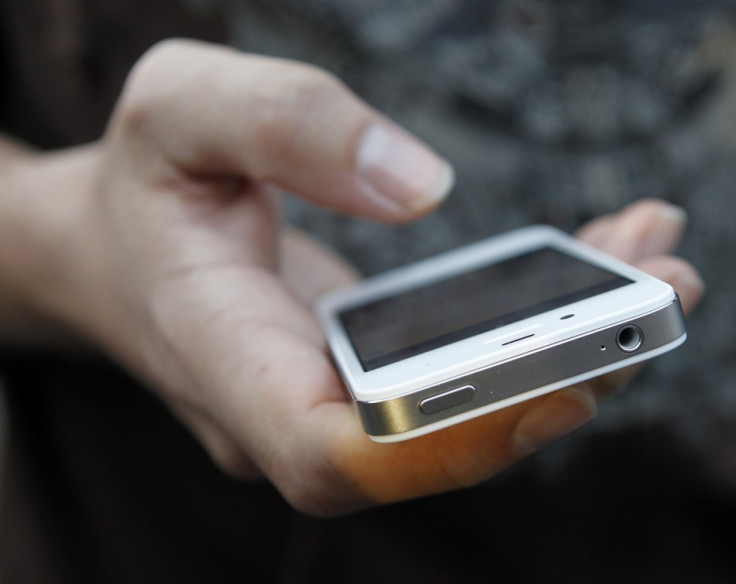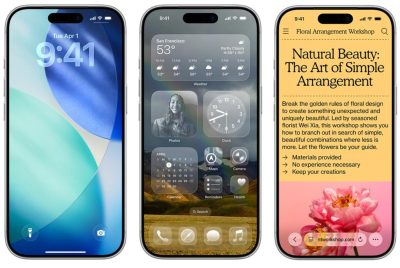My Anonymous Harasser Who Hid Behind The Screen [BLOG]
We share way too much of our lives online, and Alistair Charlton found out the tough way that when it gets into the wrong hands it's all too easy to be harassed from behind a computer screen.

Technology is great, isn't it? In the couple of decades I've been around we have gone from computers the size of pianos and mobile phones like house bricks, to smartphones, internet-connected pens, and glasses you can tweet with.
And then there's social networking. We can keep in touch with friends like never before, contact just about anyone on the planet with ease and even meet someone new.
But what happens when just your name, phone number and email address fall into the wrong hands?
This is the story of how easily someone can be harassed, threatened and intimidated to the stage where the vibration of a new text messages scares them.
I say someone; it was me, and earlier this year it was my phone and my email inbox that terrorised me with threats, insults, and claims of knowing my location coming from a complete stranger.
Hiding behind the screen
This isn't a story of why all this came about, or really much about the technology used, but about how easy it is to cause harm, while hiding in safety behind the screen of a computer or mobile phone.
Giving your phone number to someone is usually done without a second thought, and a quick search of any social network will bring up numerous users who even think sharing their number publicly is fine - that, or they don't realise that it's public, but that's another story.
Texts and emails offer a degree of invisibility that phone calls or face-to-face meetings don't have. There's a barrier in place obscuring everything, and nothing gets through this barrier apart from a string of lifeless, inanimate words.
You can't hear the writer's voice in your head, you can't picture their face as they threaten you or say you're worthless. Negotiating with an unknown person like this over text is like trying to convince a bear that you don't taste very nice - there's no emotion there, no connection and no understanding.
The text messages started off as vague, fairly poor attempts at insult with equally bad spelling and grammar. Not being a complete pushover, I fought back initially, asking why this person was wasting their time, in an attempt to reason with them.
Sadly it didn't work, and instead of getting bored and giving up as I had hoped, they carried on to threaten and to provide just enough information about me to make me feel uncomfortable.
Yelling
At this point you're probably yelling 'change your number' at the computer screen and, yes, so am I as I write this. I was a fool for not doing so, but I saw changing my number as defeat and I wasn't going to let this person beat me.
Looking back now that sounds quite daft, but there we go. I'd never had to deal with these situations before and I didn't know how best to react - and besides, my network provider wanted £50 to make the change.
By now I was getting five or six texts each day, usually during office hours, always insulting or threatening, and quite often stating where I worked, lived, and what I'd said recently on Twitter.
I usually leave my phone on my desk at work so I can see incoming calls and emails, but now I was starting to hide it under my wallet, taking a peek every so often.
That sounds a bit weird now I've read it back, but it gets worse: I would partially cover the screen of my phone so that I could unlock it, go to the messages app and delete the offending texts without having to read them.
Weird, sad and very much the act of someone who was hopelessly out of his depth, but there we go. I even thought that this pathetic routine of obscuring the messages and deleting them was perfectly normal.
Vibrate
Every time I heard my phone vibrate against the desk, or saw it light up with a number that started to become familiar across the screen I would panic, before going through my cover-and-delete routine.
It wasn't just texts from this person that caused me to act like a rabbit caught in headlights, but any notification at all would have the same effect. I'd become scared of my mobile phone.
The thing that I enjoyed to use, had entertained me with games, music and TV, and was the hub of my social life had turned into something that intimidated me; every time I used it I was waiting for the next message to come through.
We share way, way too much of our lives online
Text messages threatening to attack me on the tube home and threats against my parents were bad enough, but it was when the person started to monitor my Twitter account that things got worse, and this served as another reminder that we share way, way too much of our lives online and in public.
"Pub quiz Thursday? 8pm, Wimbledon Chase?"
An innocent tweet from a friend asking if I was free for a local pub quiz next Thursday.
"Sounds good, see you there"
A reply from me, thinking it'll be nice to see some old university friends again.
And then the text message came through from the all-too-familiar, yet nameless, number: "Wimbledon Chase. I know that pub. I'll see you there."
My harasser had struck again, reading my (public) tweets and claiming he knew the Wimbledon Chase pub.
Now, I didn't know it at the time (I'm not from round these parts, y'see), but that's actually a train station, not a pub. But fast forward eight hours and I'm stood on the platform at Wimbledon and I'm looking out for someone who wants me dead.
I meet my friends with a smile and head to the pub.
Questions
The questions roll by and I forget about my problems. I'd not told anyone; why would I tell someone about a few bothersome text messages? That would feel like defeat as well; I can deal with this myself, I thought.
At half time I check my phone, and: "How did someone like you get friends like that?"
Great, he's watching me isn't he? I have a quick look around, looking for what I imagine a psychopath to look like, but I see nothing more than regular pub folk.
Of course, no one was actually there, but that didn't stop my brain going into overload and taking everything this person said as fact. It's strange to think back to that evening and how utterly foolish I was to believe any of it, but that's just the state I'd got myself into. A few hours later I arrived home wearing the cosy, protective blanket of a few pints of beer and logged into Twitter to change my account from public to protected - essentially meaning that no one can see my tweets unless I allow them to start following me.
I had a quick scan through my recent followers in case one was holding a mobile phone and an axe in their profile picture, but sadly my harasser wasn't that easy to find.
No more than ten minutes later I got a text saying that protecting my Twitter account wasn't going to help; this person had been looking at my tweets at the very same time I had hidden them from view. Had he been looking at them all day, or was his timing a coincidence?
Either way, I've tweeted more than 20,000 times over four years and I'd dread to think how accurate the picture of my life would be if you read them all.
Fast forward
Fast forward a few months and things have quietened down. I haven't changed my number and - despite a phase of being added to some dodgy dating websites - my email remained the same as well.
I'd almost forgotten about the problems of earlier in the year and a vibrating phone was no longer a cause for concern. But, one evening I exited the Underground and, as my phone reconnected to Vodafone, a text came through from that same nameless number.
Another threat, an insult and some bad grammar thrown in for good measure. This was followed by another text the following day, and one more later in the week, but then it stopped. No emails, no further texts. Strange, but I'm not complaining.
Then the relentless calling started
A few friends and family members have ex-directory phone numbers that appear as 'Blocked' on an iPhone, so answering such a call is something I do every few days, but now I was getting called from 'Blocked' almost around the clock, and there was always silence on the other end of the line.
No speaking, no television in the background and no heavy breathing (this isn't a cheap horror film). Just the occasional sounds of movement, hardly audible even with the speaker turned up and pressed to my ear.
Over the course of one weekend I got more than 120 calls from this mystery number. Sometimes I'd hang up right away, other times I'd leave it on mute and wait for them to hang up, like a rubbish and very quiet game of chicken.
The record for one of these silent calls was more than an hour.
It started to become funny in a weird sort of way, presuming this wasn't a strange technical glitch (it happened with multiple phones), and I'd pass my phone to friends who fancied having a slightly drunken rant at whoever was on the other end.
Amusing as these calls became, they were still a nuisance. I was forever hanging up on anyone who was genuinely trying to call me from an ex-directory number, and my battery life took a nosedive.
Change
Having being told by Vodafone months previously that a number change would be "at least £50", I took a screenshot of my recent calls list - more than 100 from 'Blocked' - and tweeted it to Vodafone UK, who promptly sorted me out with a new number there and then, and at no charge.
I could have kicked myself quite hard for not doing this sooner, but like I said, it had become a battle that I didn't want to lose.
I suppose I did lose in the end, but there's more to it than that; this experience showed me in crystal clear HD that it's remarkably easy to hassle and terrorise someone to the point where their own phone is something to be intimidated by.
This isn't a dig at the technology involved, the networks or manufacturers, more of an observation that while society has no doubt been improved by technology and we've all been brought closer together, it's easier than ever to hide anonymously behind a screen, saying whatever you like.
© Copyright IBTimes 2025. All rights reserved.





















